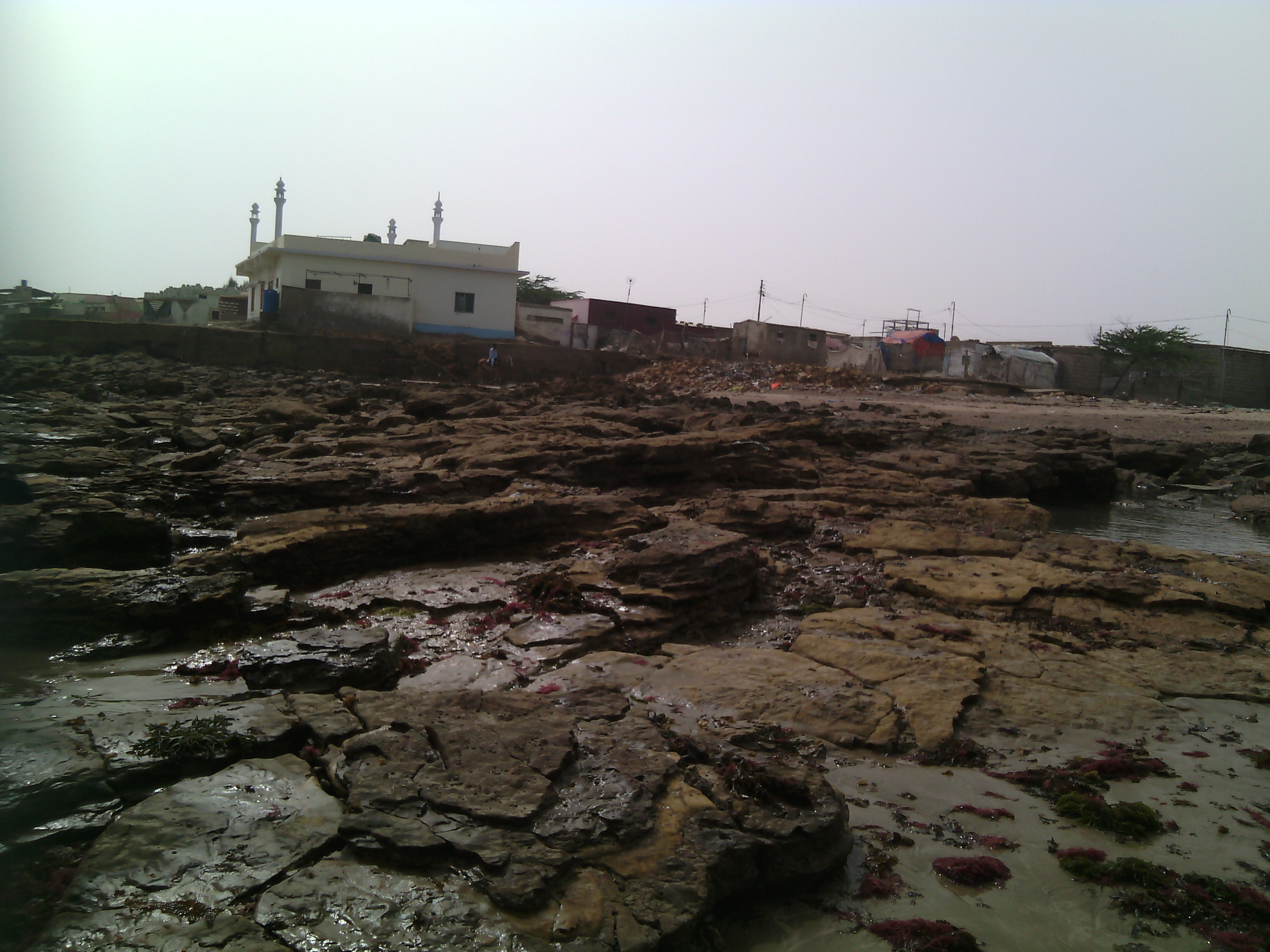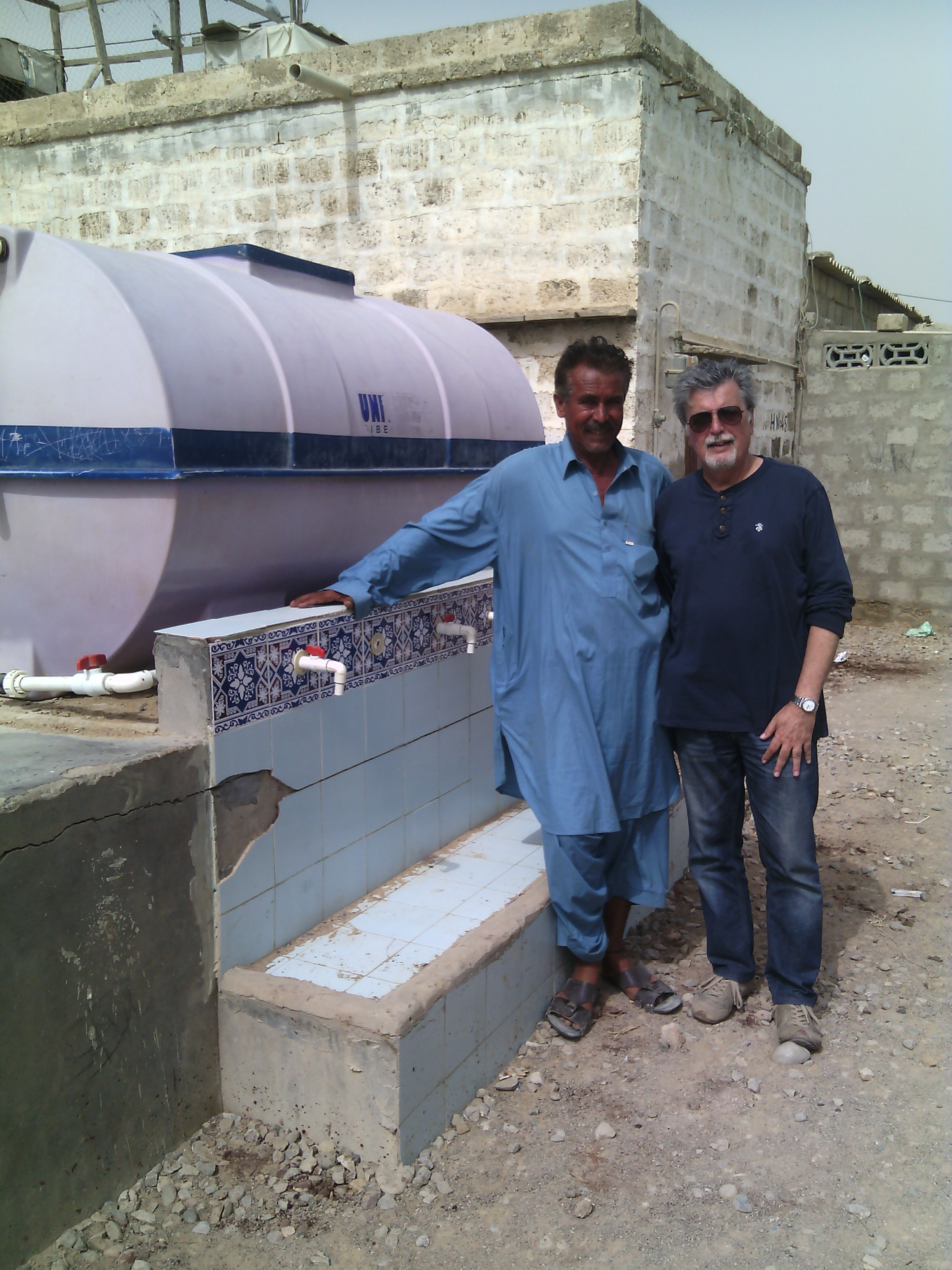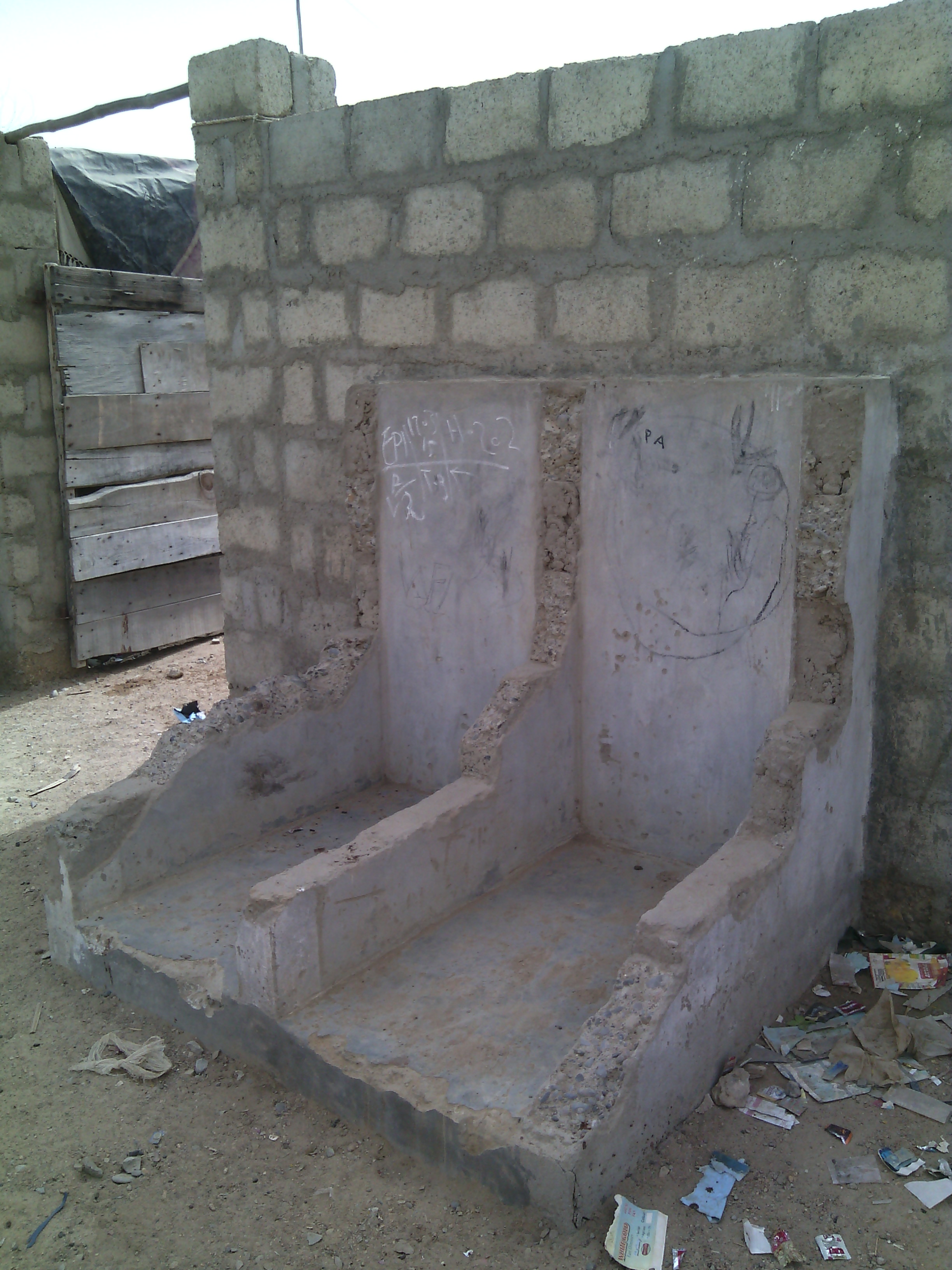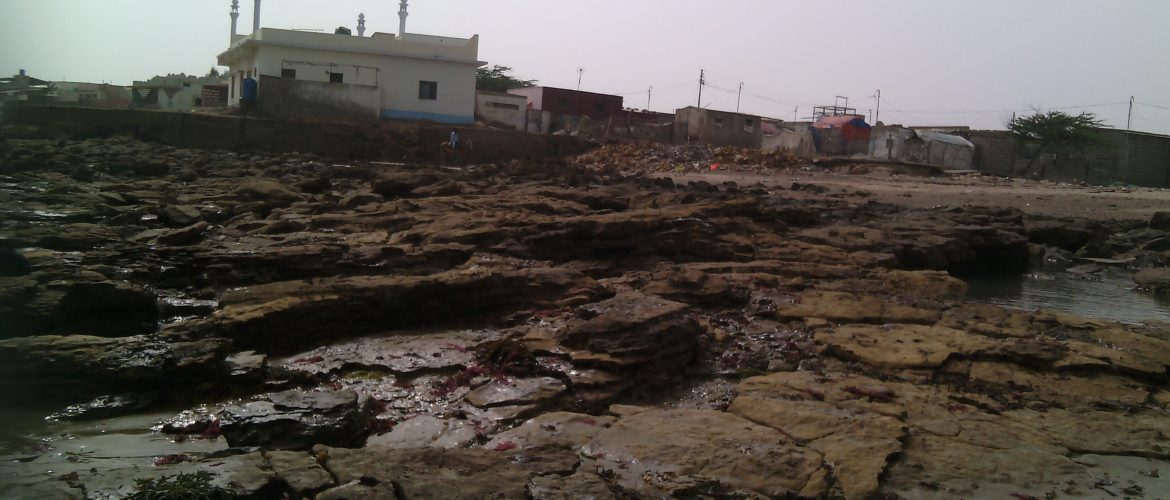Sumar Goth is one of the many villages dotting the coastline of Karachi, near Hawkesbay and is one of the villages where IET has interventions.

On a recent visit to the village IET’s team came across a new water tank installed by one of the ngo’s working in the area. We were really happy to see this new development in a village which thirst’s for water despite being so close to the city of Karachi. Commenting on this new development we congratulated the villagers. The villagers responded by telling us that the water tank was not functional as there was no water supply to the village. Chacha Omer the village elder commented that the money spent on building of the base for the water tank and the water tank itself was of no use to the villagers who still had to buy their water from the water suppliers. ” The ngo’s and the governments need to think about how to give us water not water tanks. Now the Reverse Osmosis Plant has started functioning but still there is no line to the village, supplying water to our homes. But we are still grateful that we have water.” He then gestured to a nearby waste disposal system installed by another ngo. The waste disposal system was in a bad shape and not in use, the waste still spread out around the village. “I said to them, you have told us to throw our waste into this waste disposal point, but which KMC truck will come to collect the garbage from our village?”


These two incidents serve to highlight the two main approaches of IET, one of Integrated Development and the other of Participatory Approach towards development. The well meaning endevour by an NGO goes to waste as there is no water connection tot he village. And in the absence of a waste collection system how does the provision of a waste disposal point serve to improve the hygiene level of the village? The problem with a lot of the well meaning initiatives is that they are not planned in conjunction with the villagers and neither do they serve to solve the problems of the villagers.
IET approaches all intervention through its Institutional Development program, through which it aims to organize and motivate locals to identify and propose solutions to their own problems. The result of such a participatory process of intervention is being witnessed in many of our projects. The sad part is that such projects dig into the scarce money available for development work and also fail to achieve the purpose. The participatory approach helps to mitigate such problems and integrated solutions ensure that the development projects are functional and sustained. For real development we need to change our approach to Development with Dignity.

